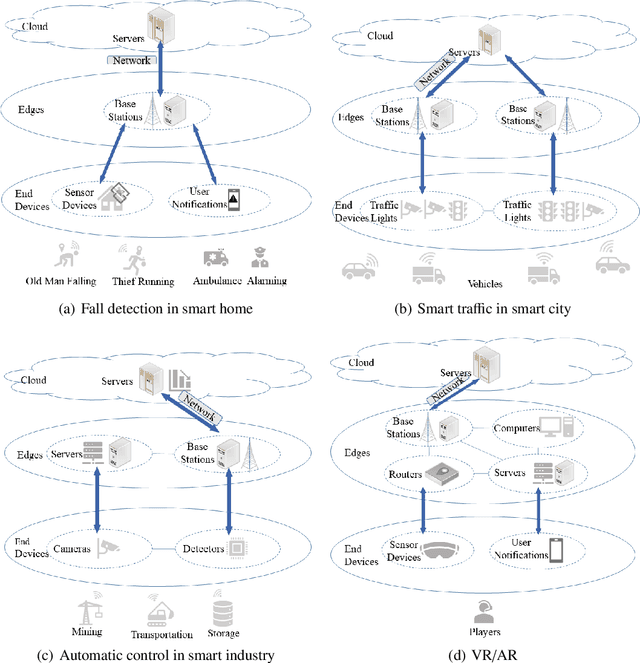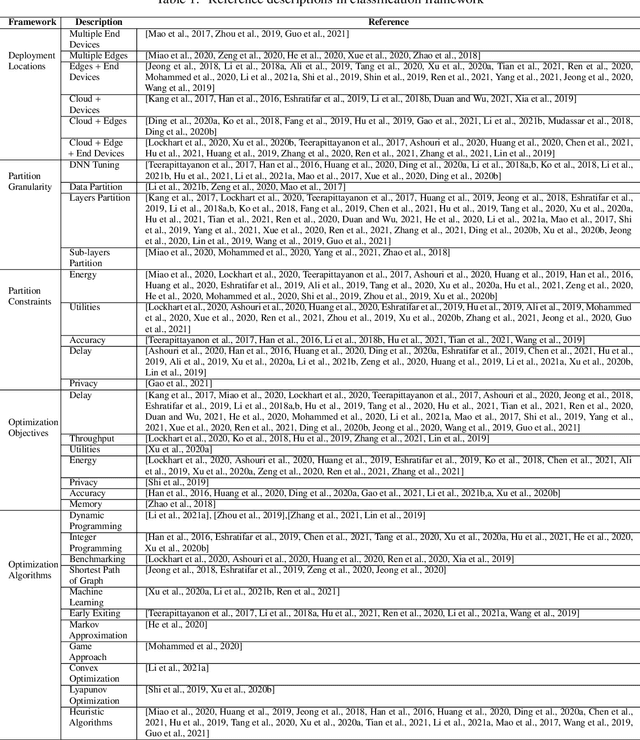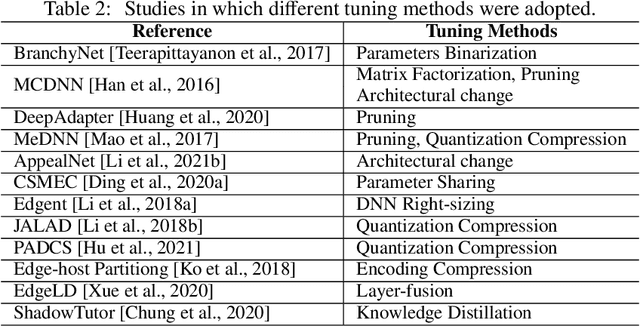A Survey on Deep Neural Network Partition over Cloud, Edge and End Devices
Paper and Code
Apr 20, 2023



Deep neural network (DNN) partition is a research problem that involves splitting a DNN into multiple parts and offloading them to specific locations. Because of the recent advancement in multi-access edge computing and edge intelligence, DNN partition has been considered as a powerful tool for improving DNN inference performance when the computing resources of edge and end devices are limited and the remote transmission of data from these devices to clouds is costly. This paper provides a comprehensive survey on the recent advances and challenges in DNN partition approaches over the cloud, edge, and end devices based on a detailed literature collection. We review how DNN partition works in various application scenarios, and provide a unified mathematical model of the DNN partition problem. We developed a five-dimensional classification framework for DNN partition approaches, consisting of deployment locations, partition granularity, partition constraints, optimization objectives, and optimization algorithms. Each existing DNN partition approache can be perfectly defined in this framework by instantiating each dimension into specific values. In addition, we suggest a set of metrics for comparing and evaluating the DNN partition approaches. Based on this, we identify and discuss research challenges that have not yet been investigated or fully addressed. We hope that this work helps DNN partition researchers by highlighting significant future research directions in this domain.
 Add to Chrome
Add to Chrome Add to Firefox
Add to Firefox Add to Edge
Add to Edge